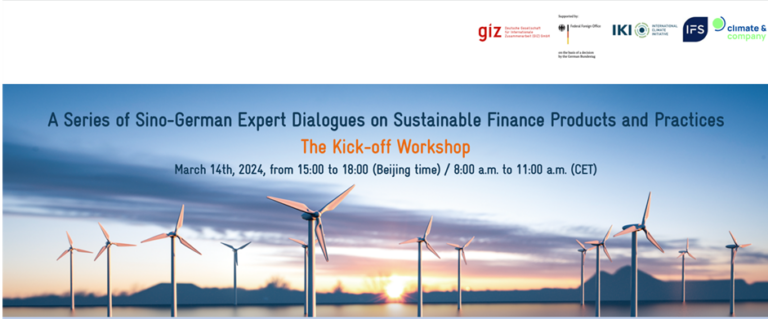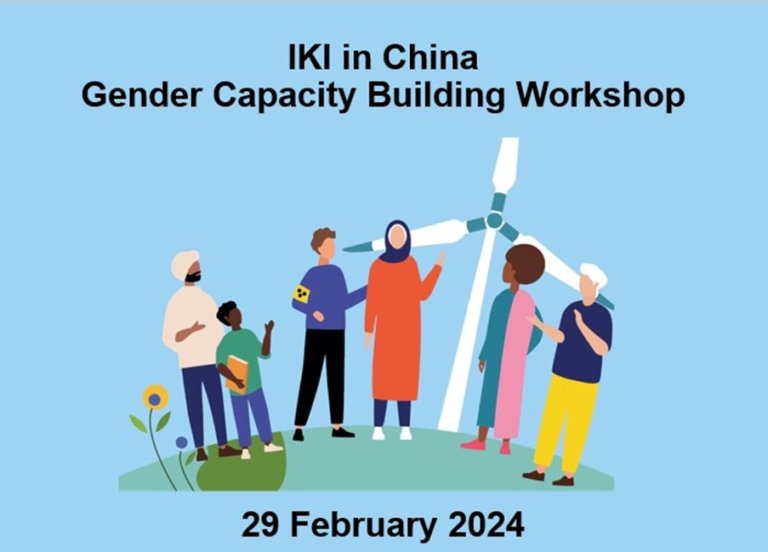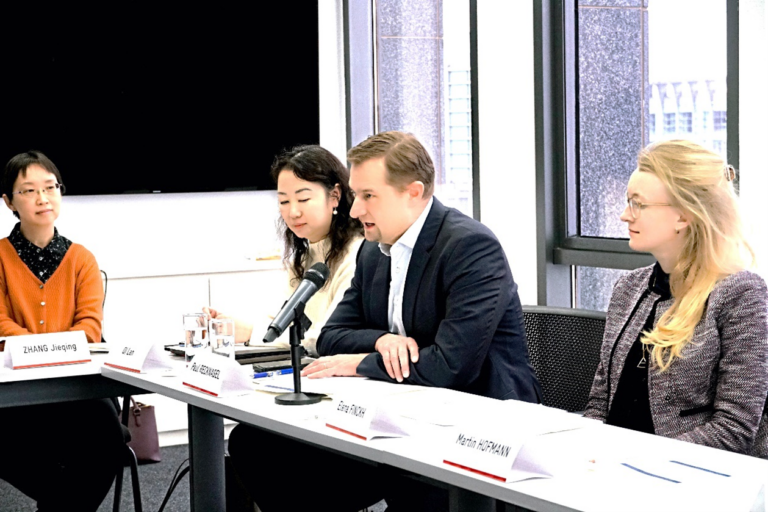
On 22 June 2021, the German Federal Ministry of Education and Research (BMBF) held its 9th installment of the Forum on Climate Economics with a focus on lower- and middle-income countries’ (LMICs’) role in climate action and the position of fossil fuel exporters. The Forum on Climate Economics is a recurring exchange platform within the BMBF’s initiative “Dialogue on the Economics of Climate Change”. GIZ China supported the BMBF in the preparation of the event by providing consultancy services on China’s role in the response to climate change.
Keynote addresses were delivered by Mr. Adam SIEMINSKI, President of the King Abdullah Petroleum Studies & Research Center, and Prof. Laurence TUBIANA, CEO of the European Climate Foundation (ECF) and Chair of the Board of Directors at the French Development Agency (AFD).
Mr. SIEMINSKI introduced the concept of “Circular Carbon Economy” (CCE), which consists of the four pillars of “Reduce, Reuse, Recycle, Remove”, building on the concept of “Reduce, Reuse, Recycle” that forms the basis of the circular economy. Mr. SIEMINSKI argued that while net zero is the end goal, fossil fuels should be used at increased efficiency as long as reliable access to renewable solutions cannot be guaranteed yet. Further, he stated that no practical solutions yet exist for hard to abate sectors such as aviation and shipping, or the production of cement and aluminum production. For this reason, fossil fuels should be used in the coming decades while also investing in CO2 capture and usage as well as natural sinks, such as afforestation. Prof. Dr. Karen PITTEL, Director of the ifo Center for Energy, Climate, and Resources, expressed concerns about the concept of CCE, stating that negative emissions will be necessary to still reach the 1.5° C target. If they are used now to compensate for slightly reduced carbon usage, they will be missing in later phases of global climate action. Instead, Prof. PITTEL emphasized the importance of introducing ‘sunset clauses’ for fossil fuel usage, thus legally establishing the phase-out of fossil fuels, to prevent investments in carbon-intensive infrastructure and incentivize sustainable investment.
Prof. TUBIANA drew strong comparisons between the Covid-19 and the climate crisis, emphasizing that both emergencies could only be addressed in a coordinated global effort. She stressed the fact that those populations who will be the most affected by climate change are mainly populations in the global South, who have historically contributed the least to global warming, and whose governments lack financial means to introduce measures for climate change mitigation and adaptation. Prof. TUBIANA called for financial support to LMICs, both in the form of short-term measures for immediate relief and long-term measures to change the international debt infrastructure in a way that allows LMICs access to affordable funds for climate action. Specifically, countries more affected by climate risk should be presented with long-time financing possibilities to rebuild and invest in climate mitigation and protection. As climate finance is a top priority for vulnerable countries, multiple initiatives for climate finance, such as the African Adaption Initiative, have been launched recently, but require funding by international donors. Prof. TUBIANA believes that in order to convince investors to invest more in developing countries, there must be a serious discussion on potential investment risks, but also better promotion of the fact that green investments are in fact profitable.



